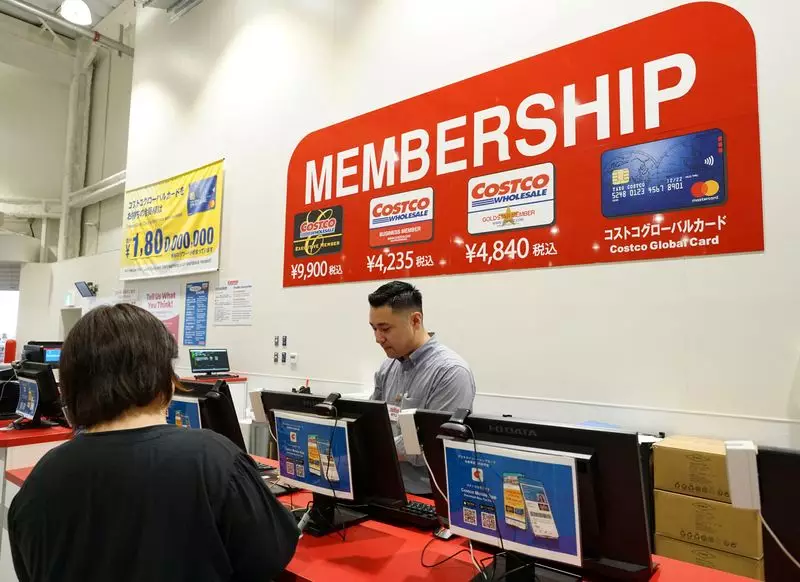The influence of big corporations on local economies can be profound and far-reaching, especially when it comes to setting competitive wages. A prime example of this can be seen in the case of Costco Wholesale opening a warehouse in a rural Japanese town near Tokyo, which led to a nearby noodle shop chain raising its hourly wages by a third. The decision made by the noodle shop, Yamada-udon, to increase wages in response to Costco’s competitive pay rates highlights the ripple effect such actions can have on a community.
For small businesses like Yamada-udon, the prospect of raising wages comes with a set of challenges. Even a minor increase in costs can have a significant impact on their operations, given the tight margins they often operate on. However, the need to attract and retain employees in a competitive labor market sometimes necessitates making adjustments to wages. In this case, the decision to renovate the store and offer higher hourly wages helped Yamada-udon stay afloat in the face of increased competition from Costco.
The issue of wage growth is not just a concern for individual businesses but also for the broader economy. Prime Minister Fumio Kishida has emphasized the importance of achieving meaningful and sustainable wage growth as a key economic goal. Despite efforts by Japanese firms to raise wages in recent years, real wages have continued to decline, affecting consumer spending and overall economic growth. Achieving a balance between increasing wages and managing costs remains a critical challenge for policymakers and businesses alike.
The arrival of big foreign firms like Costco and IKEA in Japan has set new benchmarks for wage levels, forcing local businesses to reassess their compensation strategies. Costco’s decision to set a minimum hourly wage of 1,500 yen across all its stores in Japan has set a new standard for competitive pay rates. This move has had a cascading effect on other businesses in the region, with some choosing to adjust their wages to attract and retain talent in a competitive environment.
The impact of higher wages set by big corporations like Costco goes beyond individual businesses and extends to the broader community. In the case of Meiwa, where Costco opened a store, Mayor Motosuke Tomizuka has seen firsthand the positive changes brought about by the company’s presence. The town has experienced an increase in hourly wages, a rise in daily visitors, and overall economic revitalization. The ability of employees to spend more, save, and invest in themselves highlights the broader benefits of increased wages for local residents.
While the rise in wages driven by big corporations can have positive effects, it also poses challenges for small and medium-sized businesses. These businesses may struggle to match the wage levels set by larger competitors, making it difficult to attract and retain talent. The disparity in wages between big chains and smaller businesses can widen, creating an uneven playing field in the local economy. Finding ways to support smaller businesses and ensure their long-term viability in the face of wage pressures remains a key concern for policymakers and economic experts.
The impact of big corporations on local economies through increased wages is a complex and multi-faceted issue. While higher wages can lead to economic revitalization and improved living standards for workers, they also present challenges for smaller businesses trying to compete in a changing landscape. Balancing the need for sustainable wage growth with the realities of a competitive market will be crucial in shaping the future of local economies in Japan and beyond.

